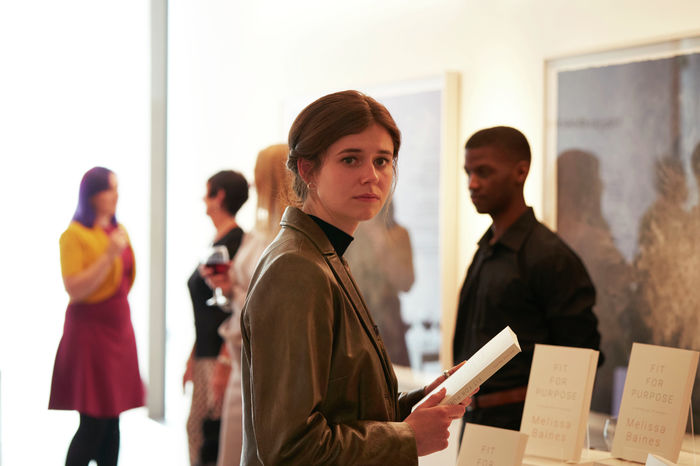Giving Sally Rooney another chance: ‘Conversations with Friends’
After struggling to understand the hype behind ‘Normal People’ I decided to give Sally Rooney one more chance. Spoiler alert: it didn’t go well

A couple of years ago, at the request of my mother and at the height of the book’s popularity, I finally read Sally Rooney’s much-raved novel ‘Normal People’. Much to my mum’s disappointment, however, I wasn’t impressed. Or rather I was confused, struggling to understand how this could be the book that everybody else was so in love with. So, looking for answers, I recently decided to give Rooney another chance.
Spoiler alert: it didn’t go well.
This time, the novel I stole off my mum’s bookshelves was ‘Conversations with Friends’. And sadly, it didn’t provide me with the answers I was looking for. The book follows the story of 21-year-old Frances, a university student and writer who performs spoken word poetry with her best friend-slash-ex, Bobbi. When they are interviewed by journalist Melissa, they find themselves growing close to her and her husband Nick. However, as Frances gradually grows a little too close to the much older (and did I mention married?) Nick, her life takes on a whole new level of complication.
Two sentences in and I was already rolling my eyes
Once I’d flicked through the preliminary pages of rave reviews, I figured there was no way this book could disappoint. Two sentences in, however, and I was already rolling my eyes – one of many unfortunate eye-rolls to come. Immediately, we’re introduced to the novel’s protagonist Frances as she “self-consciously” holds her wrists in the background of a conversation. In Frances, we get another endlessly suffering, plain yet attractive, ‘not like other girls’, Rooney character who was never taught how to communicate her feelings. And yet, despite her total refusal to share anything with her loved ones, the reader is forced to deal with her incessant whining about how she’s broke because she refuses to get a job and that the married man she’s sleeping with is, well, married.
To make this self-destruction worse, Rooney throws obstacle after obstacle at her characters. The health issues Frances experiences and her familial complications in the book feel completely unnecessary. They seem to exist purely as a device to make her self-created misery all the more tragic. The book tries its hardest to make us pity Frances, but her insufferable nature meant that even in her darkest moments I struggled to find an ounce of sympathy for her.
The lack of punctuation reads like a desperate attempt to excite an English teacher
In fact, despite my best efforts to find one genuinely likeable character to root for, I horribly failed. Yes, I understand that this dark comedy is meant to be a satire of modern relationships. But if that’s the case, why did I find myself muttering in annoyance more often than laughing aloud? I was constantly confused about how I was meant to feel. I didn’t support the home-wrecking nor the relationship being wrecked— each as destructive as the other. Of course, this novel is a social commentary: a real-world exploration of contemporary people. And real people aren’t perfect. Many admire Rooney as the voice of our generation for her sharp observational writing style, managing to describe difficult feelings in a relatable way. However, for me, all feeling of relatability was lost by my complete lack of compassion for the characters.
At the end of the day, Rooney’s writing just isn’t my cup of tea. The simple sentence structure reminds me more of empty Rupi Kaur Instagram poetry than my favourite novels. To make matters worse, for a book about conversations there wasn’t a single quotation mark to be seen. I know Rooney’s matter-of-fact voice is loved by many. But her total disregard for basic grammar only grates me. The lack of punctuation reads like a desperate attempt to excite an English teacher while failing to add anything of value to the text.
And that wasn’t my only gripe with the dialogue. Even if the titular “conversations” are meant to be witty parodies, their thinly concealed vapidity is painful to read. With the deep-rooted cynicism all the characters share, their conversations are so horribly esoteric I might as well have been doing my English degree. In the worst example, a discussion about the Black Lives Matter movement leads Frances to claim that she (a white woman) wants to disclaim her ethnicity. Even if this is meant to be satire, the irony falls flat to its face in a novel written by a white author set in a room where only white characters are speaking.
So, no, I wouldn’t call Rooney the voice of our generation. I honestly do wish I could find the joy in her novels that so many others do. As of right now, however, my mind is unchanged – I am simply not a Rooney fan. But who knows, maybe in a couple of years I’ll gather the strength to read ‘Beautiful World Where Are You?’ and all of that will change… probably wishful thinking.
 Comment / Cambridge students are too opinionated 21 April 2025
Comment / Cambridge students are too opinionated 21 April 2025 Comment / Cambridge’s tourism risks commodifying students18 April 2025
Comment / Cambridge’s tourism risks commodifying students18 April 2025 News / Cambridge researchers build tool to predict cancer treatment success19 April 2025
News / Cambridge researchers build tool to predict cancer treatment success19 April 2025 News / News in brief: campaigning and drinking20 April 2025
News / News in brief: campaigning and drinking20 April 2025 Interviews / Meet the Chaplain who’s working to make Cambridge a university of sanctuary for refugees20 April 2025
Interviews / Meet the Chaplain who’s working to make Cambridge a university of sanctuary for refugees20 April 2025



